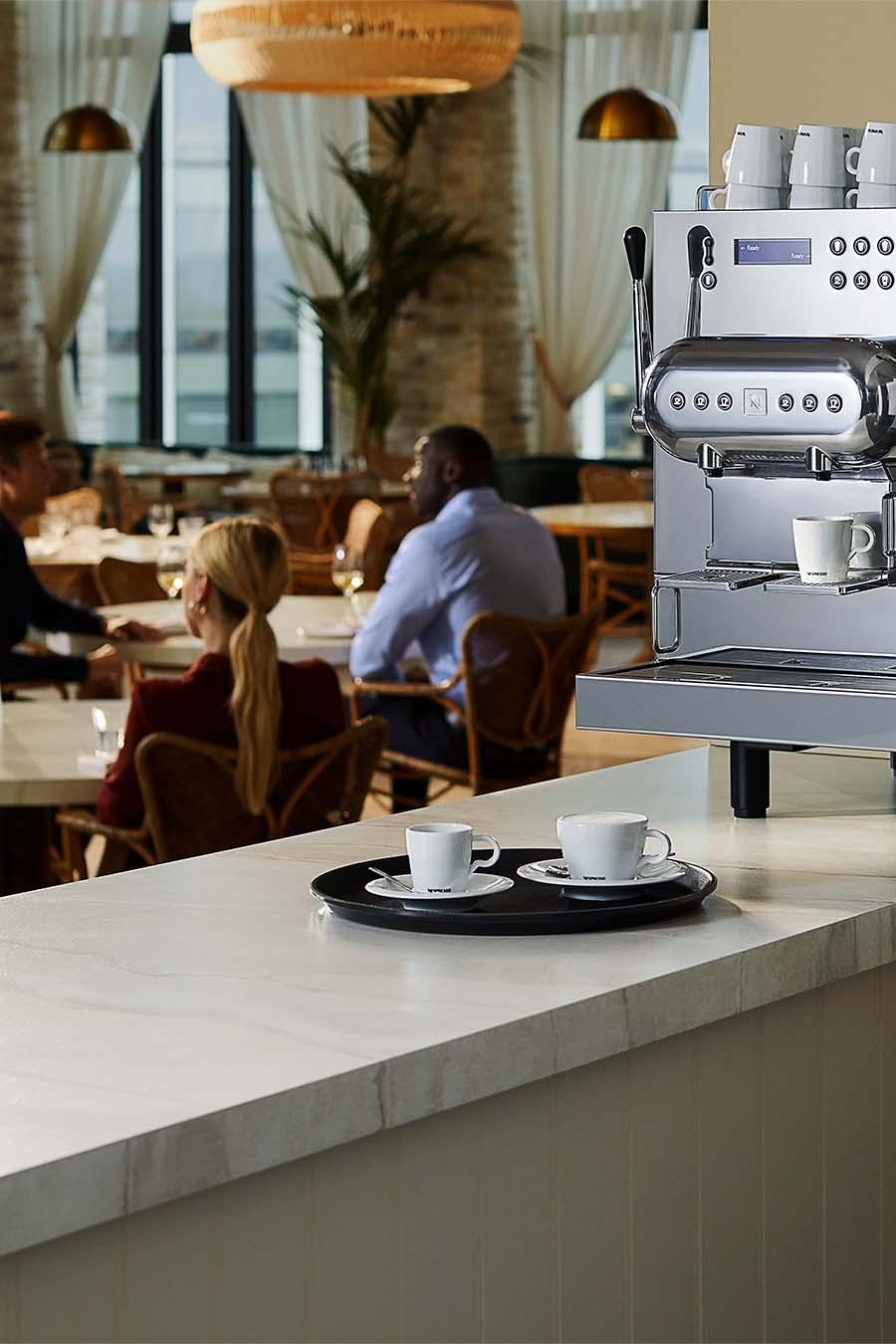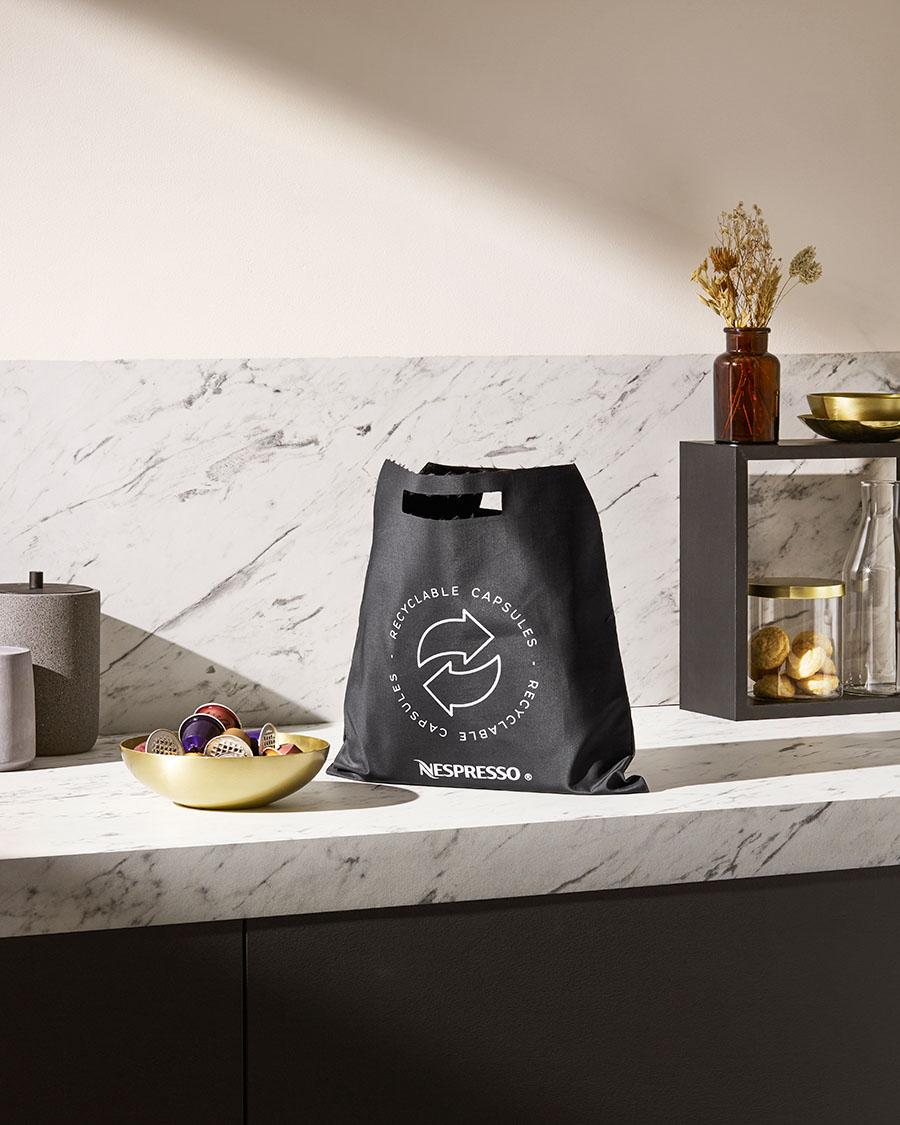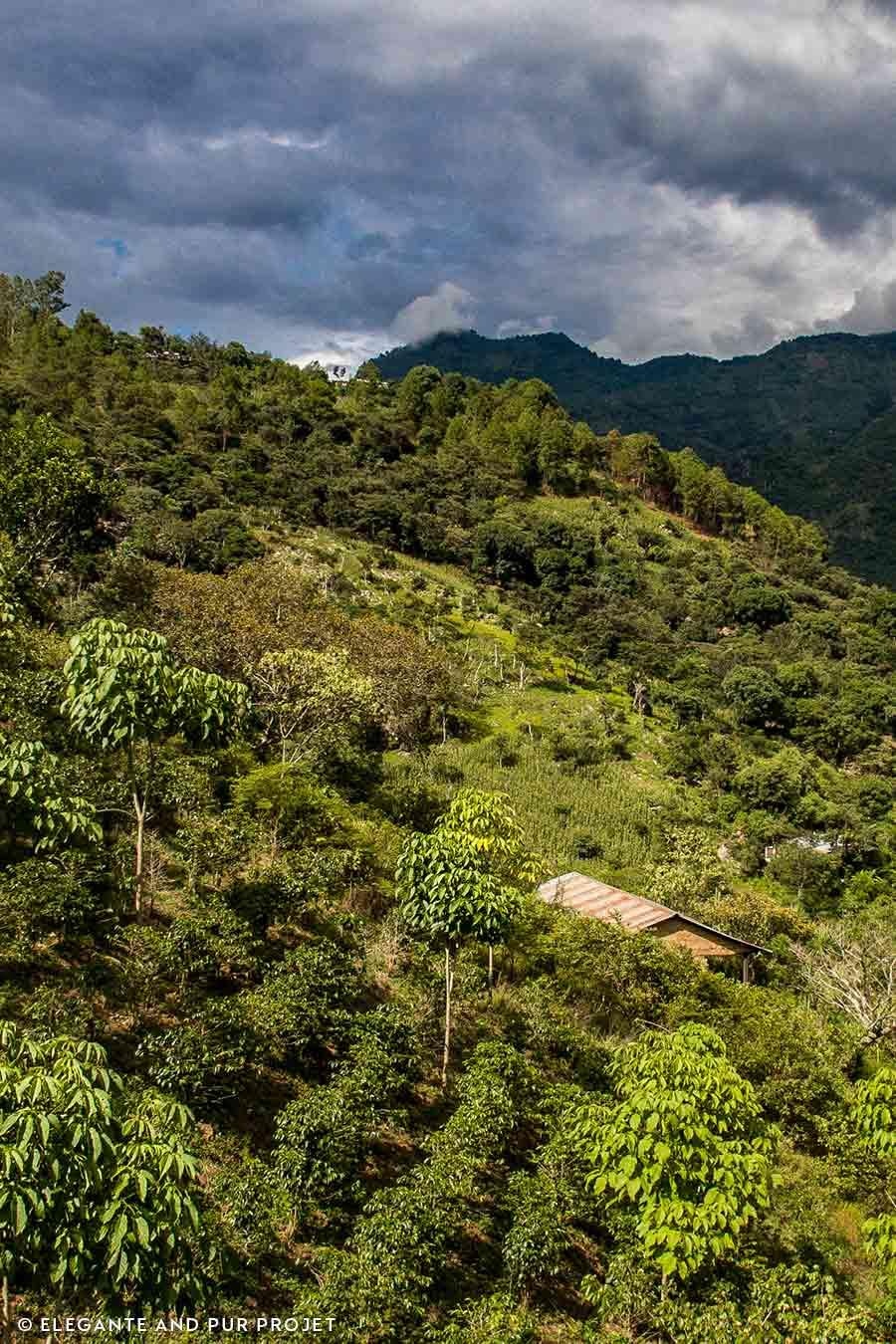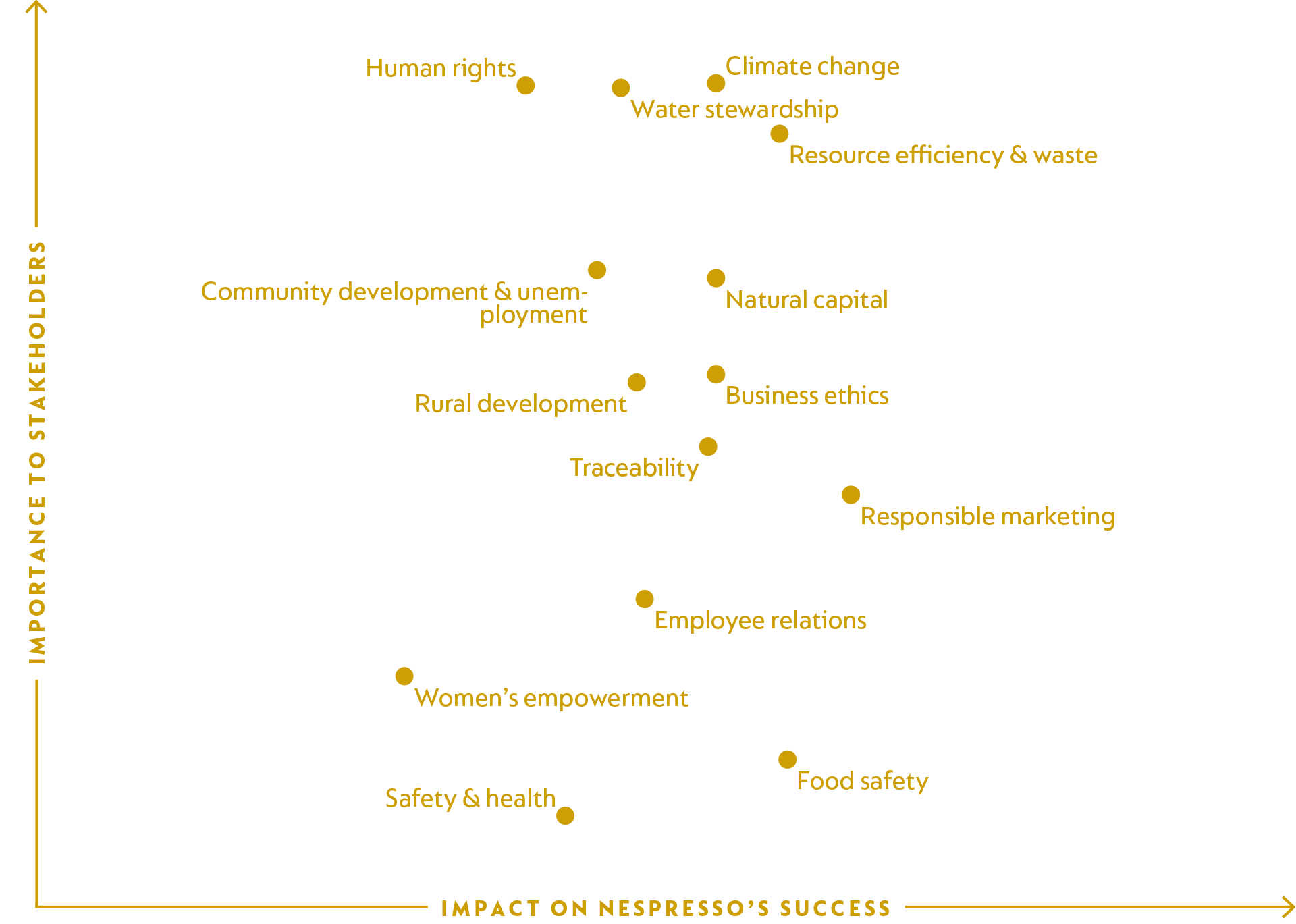For more than 30 years, we have been exploring and learning how best to integrate social and environmental considerations into our activities – at the same time as improving efficiency and growing sustainably.
The globally recognised GRI materiality assessment has played a crucial role in this. Identifying the issues that matter most to our business and stakeholders as well as steering decision-making on initiatives that support the 2030 UN agenda for sustainable development. This integrated thinking shapes both our business strategy and desire to generate positive impacts.
MAKE SUSTAINABLE PRODUCTION THE WAY WE DO BUSINESS
Nespresso’s central focus is moving towards the sustainable production of coffee and aluminium and engaging consumers in the importance of sustainable consumption. Our 2020 goals reflect the resources and approaches integral to this transition.
2020 GOALS
- Invest CHF 500 million into sustainable operations from 2014 to 2020
- Empower everyone in our company to contribute to our sustainability strategy
- Catalyse innovation through the Nespresso Sustainability Innovation Fund

Jérôme Perez, Global Head of Sustainability, Nespresso“Each and everyone is involved because we consider sustainability as a company-wide project.”

ENGAGE CONSUMERS IN THE VALUE OF SUSTAINABLE QUALITY COFFEE
The promise of quality we make to consumers depends on the resilience of the farming communities producing the raw materials. Since 2003, we have invested in the Nespresso AAA Sustainable Quality™ Program – a coffee sourcing program that respects both people and the environment. Sourcing our entire green coffee volume in this way remains an important goal. More pressing perhaps, is the need to engage consumers in the benefits of sustainable quality. Offering coffees from rare origins that generate positive impacts within local farming communities, and creating certified coffees, are both attempts to do so: raising awareness of the story behind every cup of coffee.
2020 GOALS
-
Source towards 100% of our permanent coffees through the AAA Sustainable Quality™ Program
-
Increase the share of certified coffees in AAA +12 pp (vs. 2014)
-
Expand our value proposition to rare Origins and pursue innovative solutions to better livelihoods of farmers
Alfonso Gonzalez, Chief Customer Officer, Nespresso“We want each and every consumer to be able to appreciate the quality and authenticity of our coffees.”
PROMOTE SUSTAINABLE PRODUCTION AND THE CIRCULAR USE OF ALUMINIUM
Over time, Nespresso capsules have become hallmarks of design and quality. By continuing to address the dual challenges of responsible aluminium production and unlocking post-consumption value, we believe they could become hallmarks of sustainability too. This commitment to the responsible stewardship of aluminium through its life is reflected in our 2020 goals.
2020 GOALS
- Offer convenient recycling solutions to all our consumers
- Continue to increase the capsule recycling rate and unlock the circular use of aluminium
- Source ASI-certified aluminium towards 100%

Peter Bakker, President and Chief Executive Officer, World Business Council for Sustainable Development (WBCSD)“The future will be about innovation towards a circular economy.”

TAKE CONSISTENT ACTIONS IN OUR VALUE CHAIN TO ADDRESS THE CAUSES AND CONSEQUENCES OF CLIMATE CHANGE
Understanding our value chain sheds light on an important issue: the regions where we source our coffees are already experiencing the adverse effects of extreme or irregular weather. It is our responsibility to continuously improve the environmental performance of a Nespresso cup of coffee so that portioned coffee can be considered a sustainable choice.
Our 2020 goals reflected the integrated approach currently in place: lowering carbon emissions within the value chain while assisting coffee farms in adopting resilient agricultural models such as agroforestry.
2020 GOALS
- Reduce the carbon footprint of a cup of Nespresso by 28% vs. 2009 LCA study
- Inset 100% of our company’s operational carbon footprint*
- Strengthen coffee landscape resilience through extensive tree planting towards 5 million
Dr. Aaron Davis, Senior Research Leader, UK Royal Botanic Gardens“With no action on climate, many coffee producing regions will lose suitability for
cultivation of arabicas by 2050.”

MATERIALITY IN SUMMARY
The matrix highlights the material issues to be considered by our business whether ongoing, evolving or new.
WHAT’S NEXT
In 2019, we will begin preparing our post-2030 ambitions and goals – steered by extensive stakeholder consultation, the use of science-based targets and the 2030 UN agenda.
* Scope 1 and 2 GHG emissions equivalent to the global volume of capsules sold.
Article published in: December 2018.

